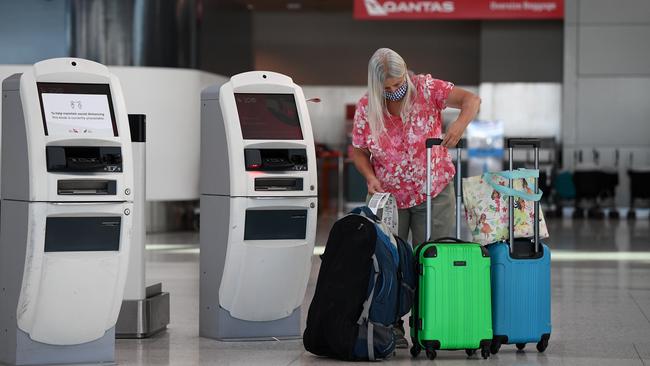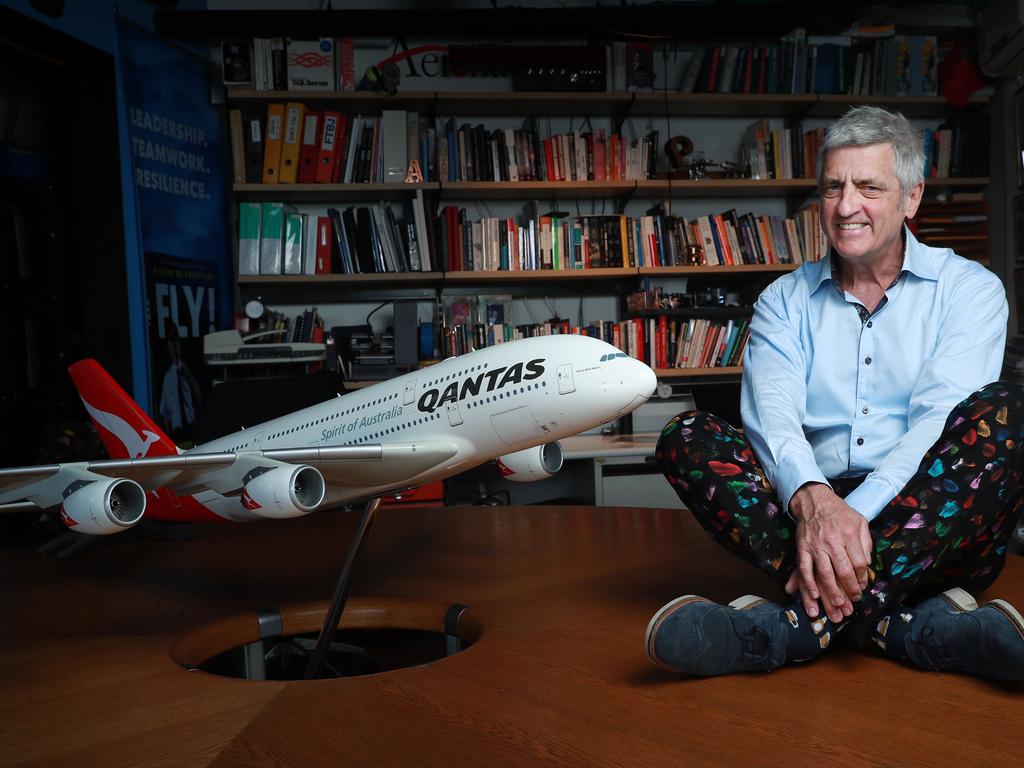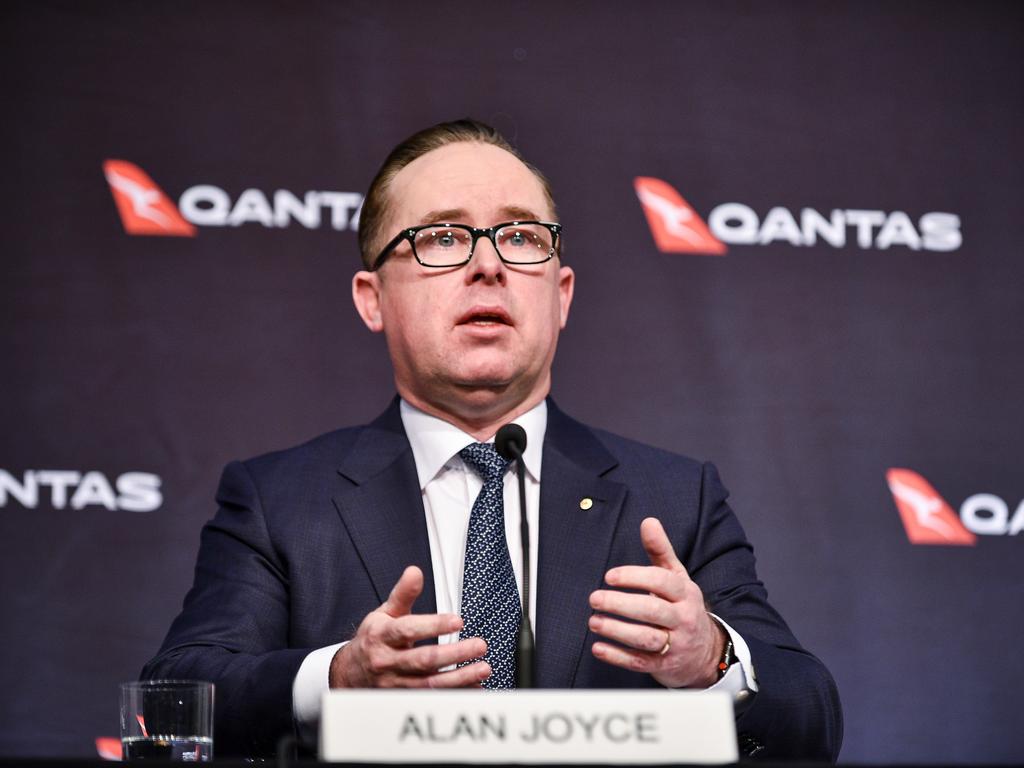Qantas moves to airport self-serve
Sales and service desks are set to go from airports as Qantas moves towards more ‘contactless’ travel.

Qantas will move more of its operations to self-serve at airports, in an effort to reduce contact between passengers and staff, and to cut costs in the current pandemic.
The airline has confirmed its service and sales desks will close at airports and in lounges as a result of about 100 redundancies among customer service staff.
It’s understood very few passengers made use of the sales desk, and a more sophisticated app would allow travellers to do the same things required of the service desk, such as pay for oversized baggage and make changes to seats.
A Qantas spokesman said the check-in counters and gates would continue to be staffed, and there would be plenty of workers on the floor to assist passengers using self-serve kiosks.
But Australian Services Union assistant national secretary Emeline Gaske said the changes amounted to a “nasty Christmas gift from Qantas” and would create a nightmare for passengers travelling over the holiday period.
“They’re abolishing the sales desk and the service desk including for premium and frequent flyers, meaning everything will be self service and if you have a problem – you’re on your own,” said Ms Gaske.
“Travellers will be forced to do everything themselves online, even if there are cancellations or delays where previously people have been able to ask a person to help.”
Qantas executive manager product and service, Phil Capps, said the main driver of the changes was an increasing shift towards people preferring self-serve.
“This was happening before COVID but it has accelerated significantly since,” Mr Capps said. “Given that shift, we can’t ignore the efficiencies that come with removing the traditional sales desks, particularly in the current environment. While most employees will be redeployed, we expect most or all job losses will be voluntary redundancies.”
The 100 customer service staff being made redundant, were among the 6000 roles being axed by Qantas to right-size the airline for the post-COVID world.
Another 2400 jobs were set to be outsourced to ground handling companies such as Menzies, Swissport or dnata.
Qantas was hopeful of returning operations to 40 per cent of pre-COVID capacity from late November, when the New South Wales-Victoria border reopened.
Since the announcement by NSW Premier Gladys Berejiklian, Qantas and Jetstar have sold more than 25,000 seats on flights between the two states, including 17,000 on the Sydney-Melbourne route.
One third of the bookings were for flights within the first week of borders reopening, highlighting the pent up demand for travel.
Jetstar CEO Gareth Evans said the low fares carriers had around 1000 bookings in the first hour alone, which was more than ten times the rate of bookings seen in recent months.
“There’s no doubt that 23 November will be a day that both our people and our customers
are very much looking forward to, particularly family and friends who can finally reunite after
months apart,” Mr Evans said.
“It’s also great news for businesses and the economy and means more of our people are
back at work.”







To join the conversation, please log in. Don't have an account? Register
Join the conversation, you are commenting as Logout